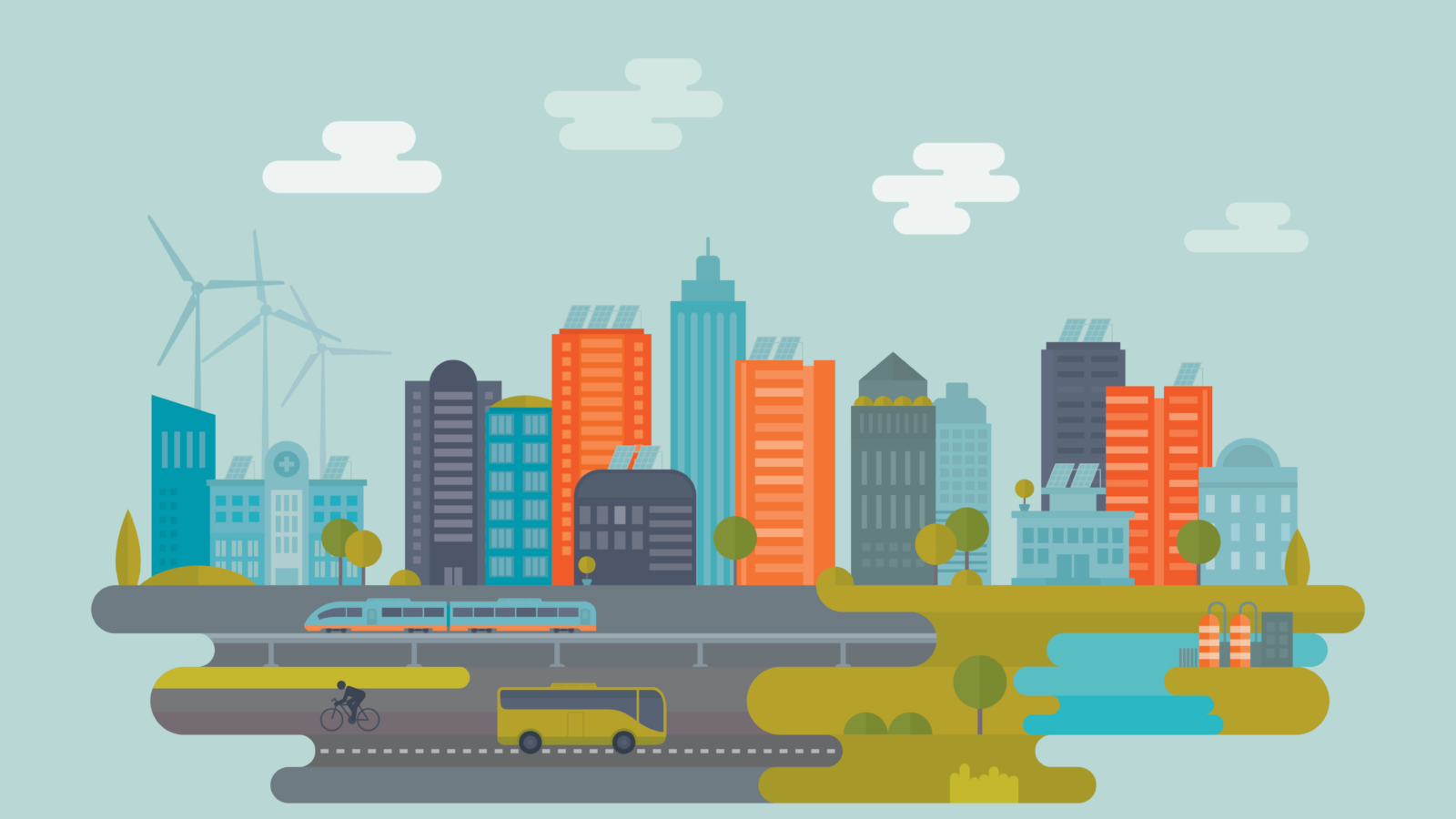Understanding the environment around us, and our place within it, can feel overwhelming. Many of us want to live more sustainably, but we don’t fully understand the extent of our environmental impact and its complex connection, not only to sustaining the well-being of our society, but also our own individual well-being.
In 2021, Arianna Huffington wrote an article called “Burned Out People Will Keep Burning Up the Planet,” where she talked about the connection between climate change, and mental resilience. “It’s clear that the way we live and work is not only burning us out,” she wrote, “but causing us to make decisions that are destroying our own health and the health of our planet.” As we approach 2024, the message of the interconnectedness between our own habits and our environment rings more true than ever. Levels of carbon dioxide in the atmosphere are higher than they’ve been for the last 800,000 years, and NASA announced that this past summer was Earth’s hottest season since global records began in 1880. At the same time, US depression rates reached an all-time high this year, reaching 29%. And in a survey by tech firm Cengage Group, 89% of people said they’ve left their jobs in the past two years due to burnout and unequal labor.
Figuring out what part you can play in saving our planet can feel daunting. During stressful or scary times, I find it comforting to know that each of us can bring our unique talents and strengths to the table and take action in our own environments to make life more sustainable for all, now and in the future. Personally, I love Heather White’s One Green Thing assessment, which is an easy way to help you identify which of the seven service types best suits your personality.
It’s clear that human behavior and our environment are inextricably linked, and if we want to make a change, we need to focus on what we can control, instead of the things that are out of our control.
Here are three areas where we can get started:
Our communities.
As Deloitte’s Human Sustainability Leader, I’ve seen time and again how much power there is in collective action. Engaging in collective action can have a multitude of benefits, including social connectedness with people who share similar goals and values. Plus, social support is one of the strongest predictors of physical and mental well-being. Studies have shown that when people feel supported by those around them, they feel more resilient and better equipped to handle stress. During difficult times, we must show up with our full, purposeful selves to be part of the collective change-making that billions of people around the world are trying to do. Consider reaching out to your neighbors to organize a neighborhood clean-up, volunteer with like-minded individuals to advocate for climate change, or participate in lobbying efforts to help address important issues. When we come together to do something greater than ourselves, it boosts social connection and our resilience, and helps improve the world we live in.
Our workplaces.
At work, we can take action on our teams, as individuals, and at the leadership level. If you’re working on a hybrid or virtual team, you can be thoughtful about the frequency and nature of your teams’ in-person get-togethers to be mindful of your carbon footprint. If you’re working in an office, you can work on being more mindful of waste and paper use, powering down your computer at the end of the day, recycling properly, or even implementing a “green team” dedicated to identifying and implementing sustainability initiatives within your workplace. And as leaders, we can make sure our teams are working sustainably and avoiding burnout, as we’ve seen the connection between protecting our own well-being and protecting the well-being of our planet. By acknowledging individuals’ different ways of working and communicating, and encouraging employees to take breaks and set boundaries, we can create work cultures that embrace sustainable work and help employees feel empowered to protect both themselves and our environment.
Our homes.
It’s so easy to get overwhelmed by signs of the climate crisis — and to wonder if the little things you’re doing in your own home are really helping at all. Many people struggle with climate anxiety, which can cause feelings of grief, rage, helplessness, and even hopelessness. These feelings can weigh on us and make us feel like we can’t contribute to any real change. But keep in mind that science continues to show us that small steps, taken consistently over time, are what lead to meaningful change. You could try swapping a one-time-use household item with a reusable one, or keeping reusable shopping bags at home or in your car. You could also try walking to work one day instead of driving, or make an effort to run your dishwasher less often during the week. Each of our tiny steps toward sustainability add up to cultural momentum, policy change, and a healthier planet for all. I’d love for all of us to commit to one new Microstep in the new year and share it with others. When we make small changes in our own lives and hold each other accountable, we can create wide-scale change that’s rooted in purpose and empathy.


